Views: 4
On an early fall evening in Athens, rows of fig trees and native crops bask in the sun at UGArden, the University of Georgia’s student-run community garden. But beneath this calm green canopy, there’s a growing unease among local gardeners.
“It’s not normal anymore,” says UGArden executive board member, Owen Setterlind. “They call it global weirding.”
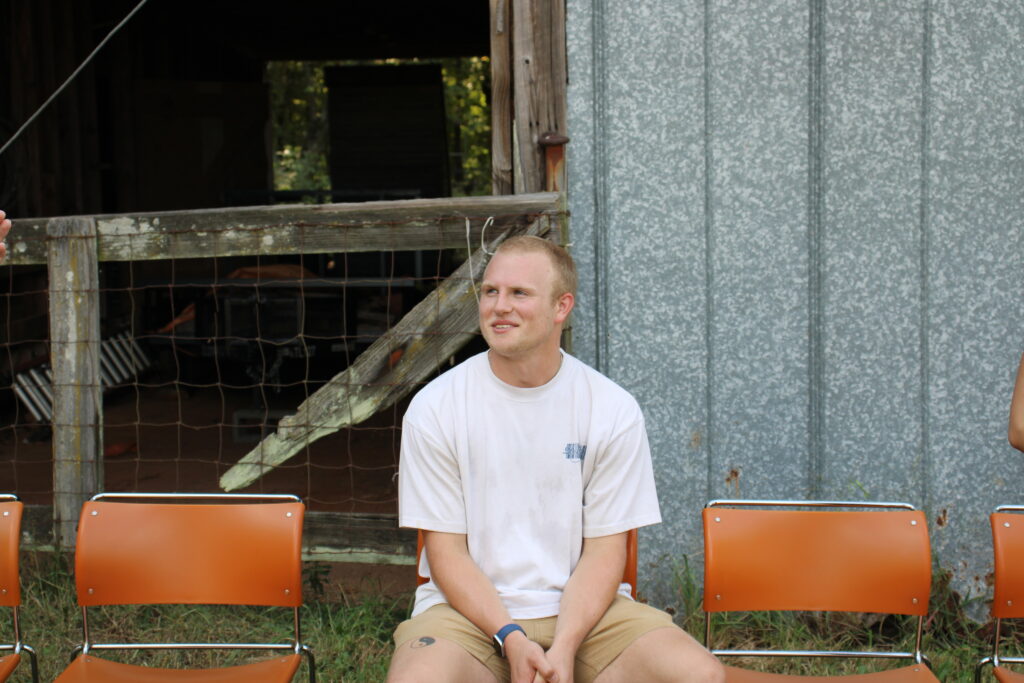 On Sept. 17 at the UGArden Club, executive board member Owen Setterlind poses for a photo prior to their weekly meeting. The UGA Community Garden fosters collaboration while adapting to climate change through sustainable practices and community engagement. (Photo/Kerwin Cannon)
On Sept. 17 at the UGArden Club, executive board member Owen Setterlind poses for a photo prior to their weekly meeting. The UGA Community Garden fosters collaboration while adapting to climate change through sustainable practices and community engagement. (Photo/Kerwin Cannon)
Across Athens, gardeners are grappling with the changing realities of a warming climate. Once-predictable seasons have shifted. Temperatures fluctuate wildly. Rain falls either all at once or not at all. These disruptions are making it harder to grow food … a challenge that hits especially hard in a town where community gardens have become a source for both food security and social connection.
“I can tell a difference,” Setterlind explained. “The first growth of a lot of plants is happening later into the winter season. That’s impacting harvesting routines — it’s all kind of being backlogged.”
Why It’s Newsworthy: Climate change is increasingly impacting daily life (including gardening) with noticeable shifts in growing seasons and rainfall all over the world. Community gardens provide food and social connection, so their ability to adapt affects food access and environmental sustainability.
This year, the delays have been even more pronounced. Athens saw a wetter-than-average spring, followed by an inconsistent summer with irregular patterns of dryness and extreme wetness.
“Usually, we plant strawberry cuttings in early spring. But it was way too dry. We had to wait an extra month just to get them started,” he said.
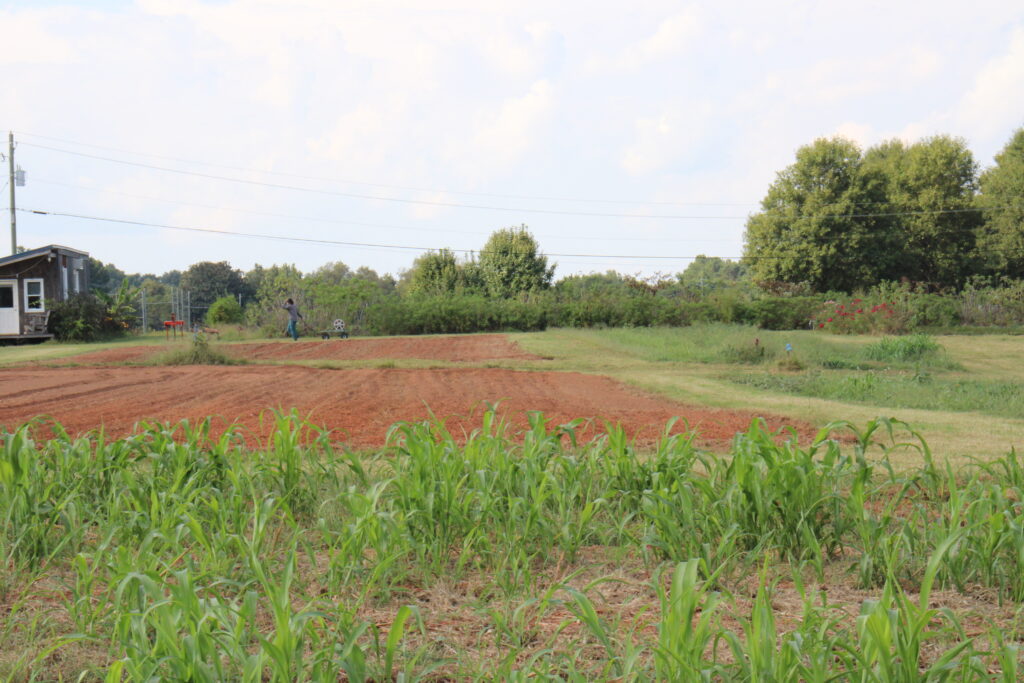 A field at the UGArden Club is prepped for planting, reflecting delays caused by unusually dry spring conditions. (Photo/Kerwin Cannon)
A field at the UGArden Club is prepped for planting, reflecting delays caused by unusually dry spring conditions. (Photo/Kerwin Cannon)
“Gardening used to be really fun for me,” said Chloe Yune, a local gardener and recent graduate of UGA. “But lately, the weather’s so erratic, it feels like I’m guessing every day. One week it’s dry, the next everything’s drowning. It’s frustrating and feels heavy, like every failed harvest is a reminder that the climate is shifting faster than I can adapt.”
Yune is a former member of the UGArden Club and has continued gardening post-graduation.
According to a UGA research study, native plants that once thrived in the region are struggling to adapt to the new climate. That change echoes throughout the gardening ecosystem from what can be grown, to when and how.
“People think it’s just about heat,” Setterlind said. “It’s not only rising temperatures, but also just irregular climate patterns. Everything’s so interconnected.”
Despite the uncertainty, this Athens community garden is refusing to wilt. Instead, it’s finding new ways to grow food, build resilience and connect the community.
At UGArden, regenerative and sustainable practices are becoming central. And on the university’s campus, composting programs, once seen as supplementary, are now essential. The UGA Office of Sustainability has ramped up its efforts, recognizing that healthy soil is one of the most effective buffers against erratic weather.
“Composting is huge,” Setterlind said. “We can reduce [food waste] by composting and reusing nutrients right here.”
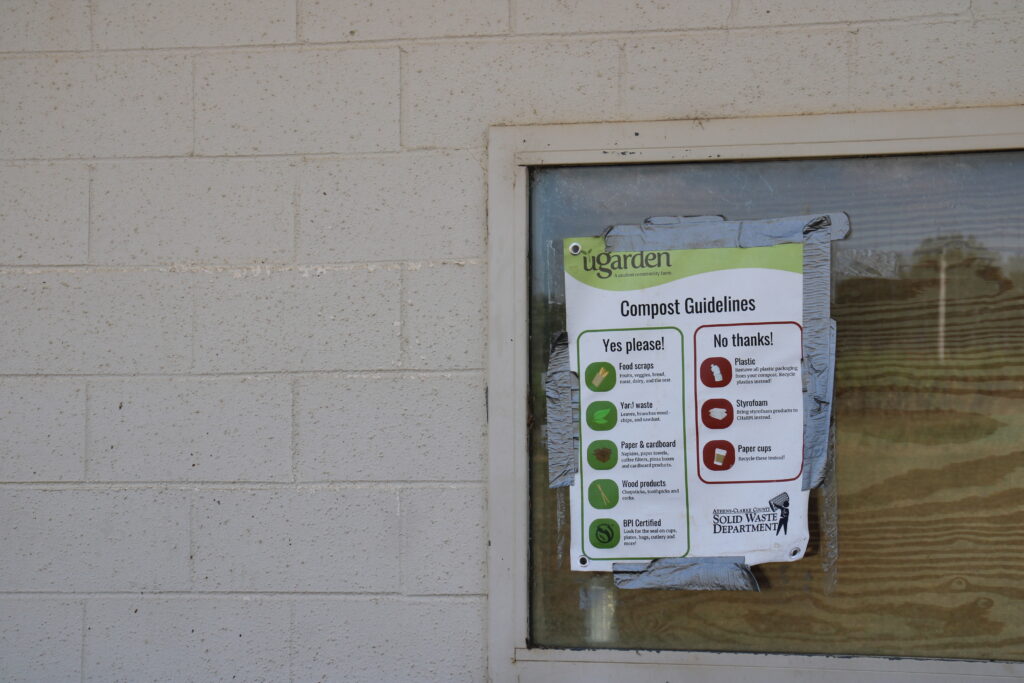 A poster at the UGArden Club outlines step-by-step instructions for composting, part of the garden’s efforts to promote sustainable practices. Educational tools like this help the UGA Community Garden reduce waste and build climate resilience. (Photo/Kerwin Cannon)
A poster at the UGArden Club outlines step-by-step instructions for composting, part of the garden’s efforts to promote sustainable practices. Educational tools like this help the UGA Community Garden reduce waste and build climate resilience. (Photo/Kerwin Cannon)
Along with UGArden, Setterlind is involved with the UGA Office of Sustainability as a composting intern.
According to the USDA, there is an estimated 30-40% of food waste in America.
Through the Office of Sustainability, innovative pilot programs like Raccoon Eyes, launched at Joe Frank Harris Dining Commons, are helping the university track what food is being wasted in campus dining halls, giving organizers data they can use to minimize waste and redistribute resources.
Composting and food waste reduction, Setterlind believes, are two ways that the UGA campus can actively participate in seeing local change as it pertains to sustainability.
Technology hasn’t been the only answer, though.
“The biggest thing is connection,” Setterlind said. “So many programs want the same thing. But they’re just isolated. So connecting all of them… that’s the biggest first step.”
That connectivity is already visible in Athens. Community gardens are sharing seeds, swapping techniques for water retention and pest management and leaning into crops better suited to the changing conditions. In some gardens, native and drought-resistant plants are replacing more vulnerable varieties. Others are experimenting with shade cloths and drip irrigation to protect soil health.
Collaborative community gardening initiatives like UGArden, where community-based organizations work alongside local gardeners, have shown significant positive impacts on food access and well-being.
A study by the National Library of Medicine shows that collaborative gardening delivers multifaceted benefits. These include improved health (both physical and mental), nutritious food grown in meaningful quantities and reclaiming agency in communities facing food injustice.
Beyond physical outcomes, these gardens foster empowerment, cultural connection and community transformation in areas facing food injustice.
Behind all of this work lies a quiet but powerful motivation, for Setterlind especially.
“I’m a big hater of the defeatist mindset,” Setterlind said. “‘What’s the point?’ is such a sad way of looking at things. Where’s the hope in that?”
Instead, he draws inspiration from an old Cree proverb: We don’t inherit the land from our ancestors, we borrow it from our descendants.
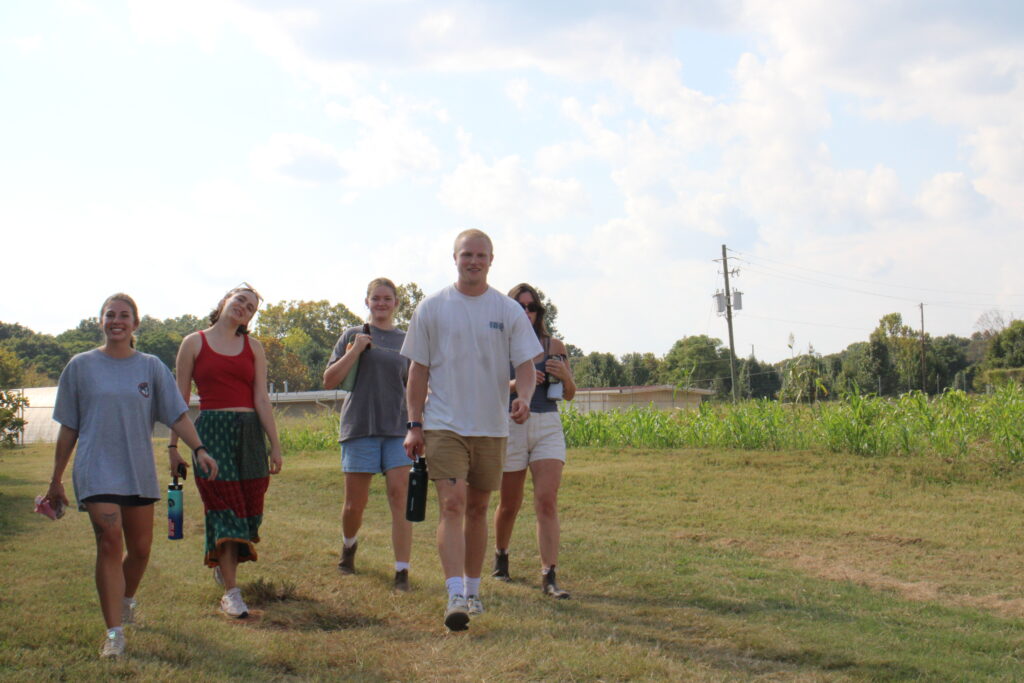 Setterlind walks with friends toward their weekly gathering, highlighting the importance of community in the garden’s mission. As the UGA community garden adapts to climate change, strong relationships remain at the root of its resilience. (Photo/Kerwin Cannon)
Setterlind walks with friends toward their weekly gathering, highlighting the importance of community in the garden’s mission. As the UGA community garden adapts to climate change, strong relationships remain at the root of its resilience. (Photo/Kerwin Cannon)
“This earth isn’t mine,” he said. “It belongs to people who haven’t been born yet. If you feel overwhelmed by the responsibility, think of it like this: there are millions and billions of people who haven’t been born yet. They deserve this, too.”
His words speak to a larger truth that’s growing in gardens: even in the face of global challenges, small and local actions matter. As the climate continues to shift, so too will the planting calendars, watering routines and crop choices in Athens’ gardens. But with every compost pile turned and every new collaboration formed, these green spaces are cultivating a future where food, hope and sustainability still take root.
Kerwin Cannon is a senior majoring in journalism, minoring in religion with a Certificate in News Literacy.

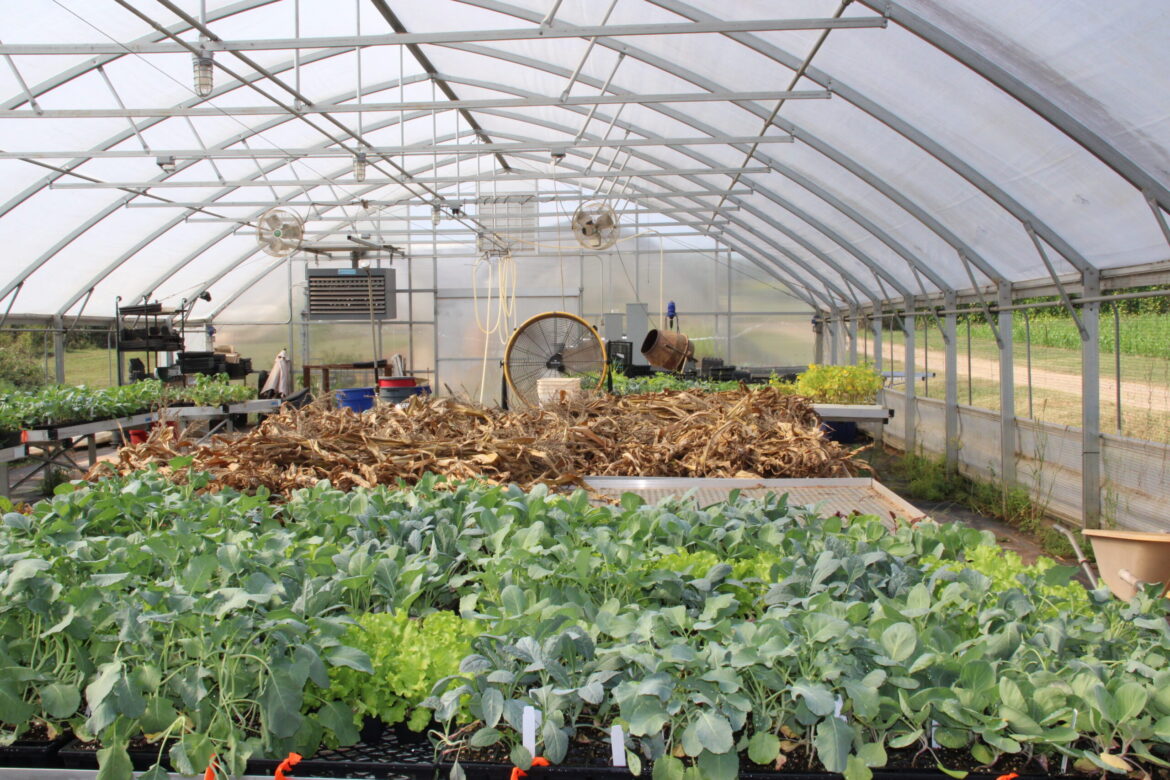
Comments are closed.